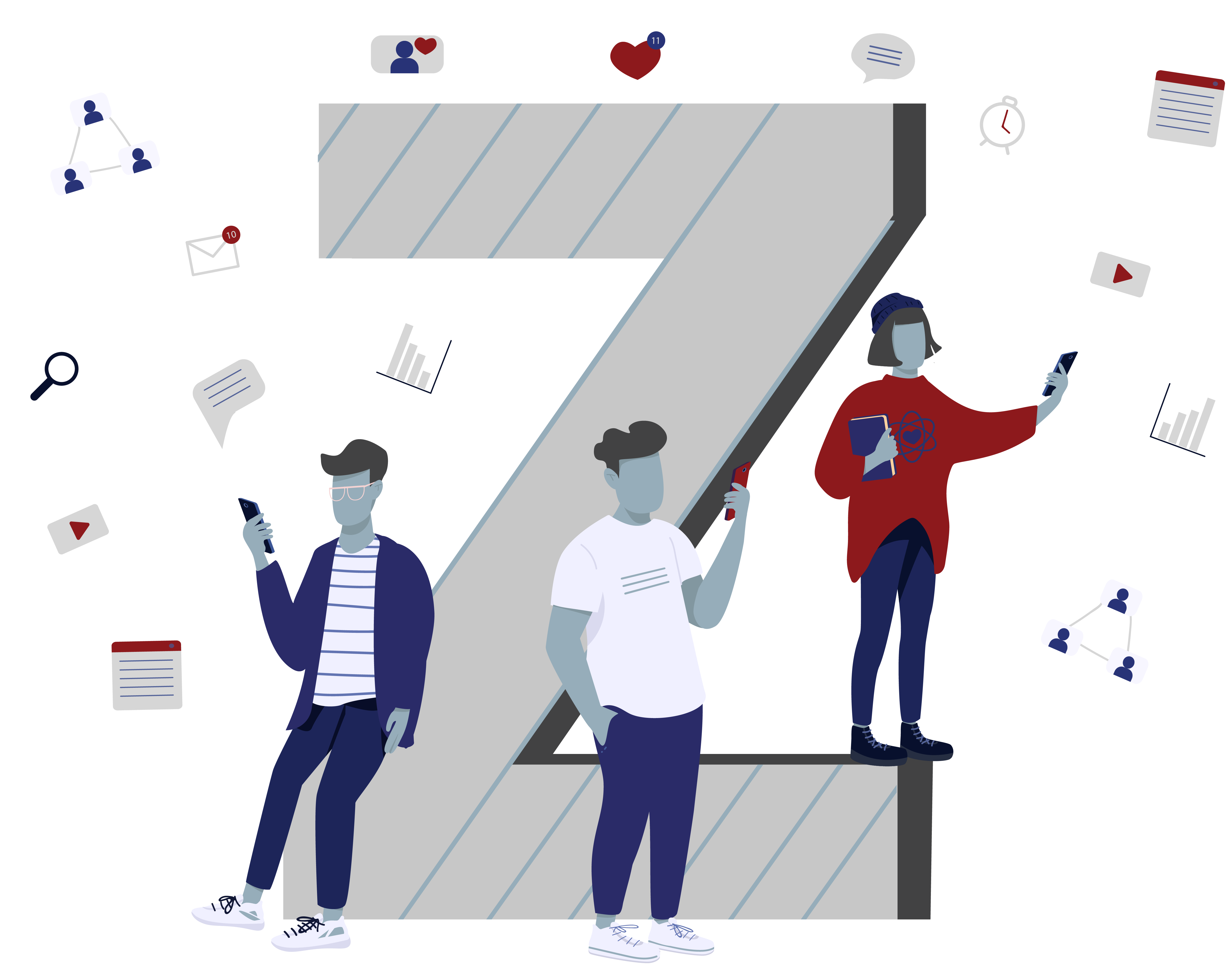For years, the insurance industry has explored how to best recruit and engage young professionals. Millennials have long been the focus of these conversations; yet, the oldest Millennials are now in their early 40s and stepping into more senior- and executive-level roles. Generation Z is the newest generation to enter the workforce and brings its own distinct characteristics, work styles and expectations.
 As the industry continues to age and retirements increase, attracting this young talent and growing them into future organizational leaders is essential. Our recent Q1 2022 Insurance Labor Market Study found nearly a quarter of carriers are planning to add entry-level staff and three-quarters are planning to add experienced staff this year. Effectively recruiting members of Generation Z and developing them into more experienced and senior-level professionals should be a central part of insurers’ talent strategies, especially in today’s competitive market.
As the industry continues to age and retirements increase, attracting this young talent and growing them into future organizational leaders is essential. Our recent Q1 2022 Insurance Labor Market Study found nearly a quarter of carriers are planning to add entry-level staff and three-quarters are planning to add experienced staff this year. Effectively recruiting members of Generation Z and developing them into more experienced and senior-level professionals should be a central part of insurers’ talent strategies, especially in today’s competitive market.
Our most recent issue of Compass, shared insights on Generation Z, as well as how insurers can best engage this unique generational cohort. Below are a few key areas of focus for developing a comprehensive talent strategy that resonates with these young professionals. While these are generalizations and may not be inclusive of all members of Generation Z, they are common characteristics that can help serve as a guide.
Growth and Development
Members of Generation Z are generally ambitious and driven, making it important to demonstrate your commitment to their career development and progression. Provide exposure into various areas of the business, be proactive in identifying their interests, and create individualized professional development plans to meet their goals, while highlighting how you’ll support them along the way.
 Innovation
Innovation
Gen Zers view flexibility, adaptability, creativity and empathy as the most important characteristics of a successful company. While insurance may not traditionally be thought of as an innovative industry, many insurers are launching new programs and initiatives to best meet evolving customer and employee demands. Emphasize recent modernization efforts and communicate how your organization is continuing to adapt to meet changing needs and involving employees in the process.
Efficient Technology
Gen Zers have always had technology at their fingertips and expect convenient and streamlined tools, especially in a largely virtual environment. Evaluate your current processes and programs to ensure all professionals are able to be as productive as possible. Additionally, make sure to leverage tools such as video conferencing and instant messaging to help members of Gen Z feel more connected to their colleagues, even if they have never met face-to-face.
 Flexibility
Flexibility
At this point in the pandemic, employees across all generations seek flexibility in terms of where and how they work. However, while Gen Zers are comfortable working in a virtual environment and desire the ability to work autonomously, they also value in-person connections. Work with your young employees to understand each individual’s unique preferences, recognizing that distractions at home and feelings of isolation may weigh on their ability to be productive more than other generations.
Diversity, Equity and Inclusion
As the most diverse generation in the workforce, members of Generation Z expect to work with teams that span a variety of backgrounds, ethnicities, cultures and more. In fact, 69% of Gen Zers said they would be more likely to apply for a job that reflects a diverse workplace in its recruiting materials. Communicate your commitment to diversity at all levels of your organization, while ensuring your recruiting and employee development programs are inclusive and equitable.
 Mental Health
Mental Health
Generation Z is more likely than any other generation to be open about mental health challenges, even reaching out to employers for support. Nearly half of Generation Z adults said their mental health has worsened during the pandemic and 46% believe the pandemic has made it more difficult to pursue career or professional goals. Organizations should make an effort to normalize these feelings and provide access to resources and tools for assistance.
Engaging and growing young professionals is vital to the success of any organization. Read the full article to learn more about Generation Z and ways your organization can best resonate with this young talent and gain their long-term loyalty.